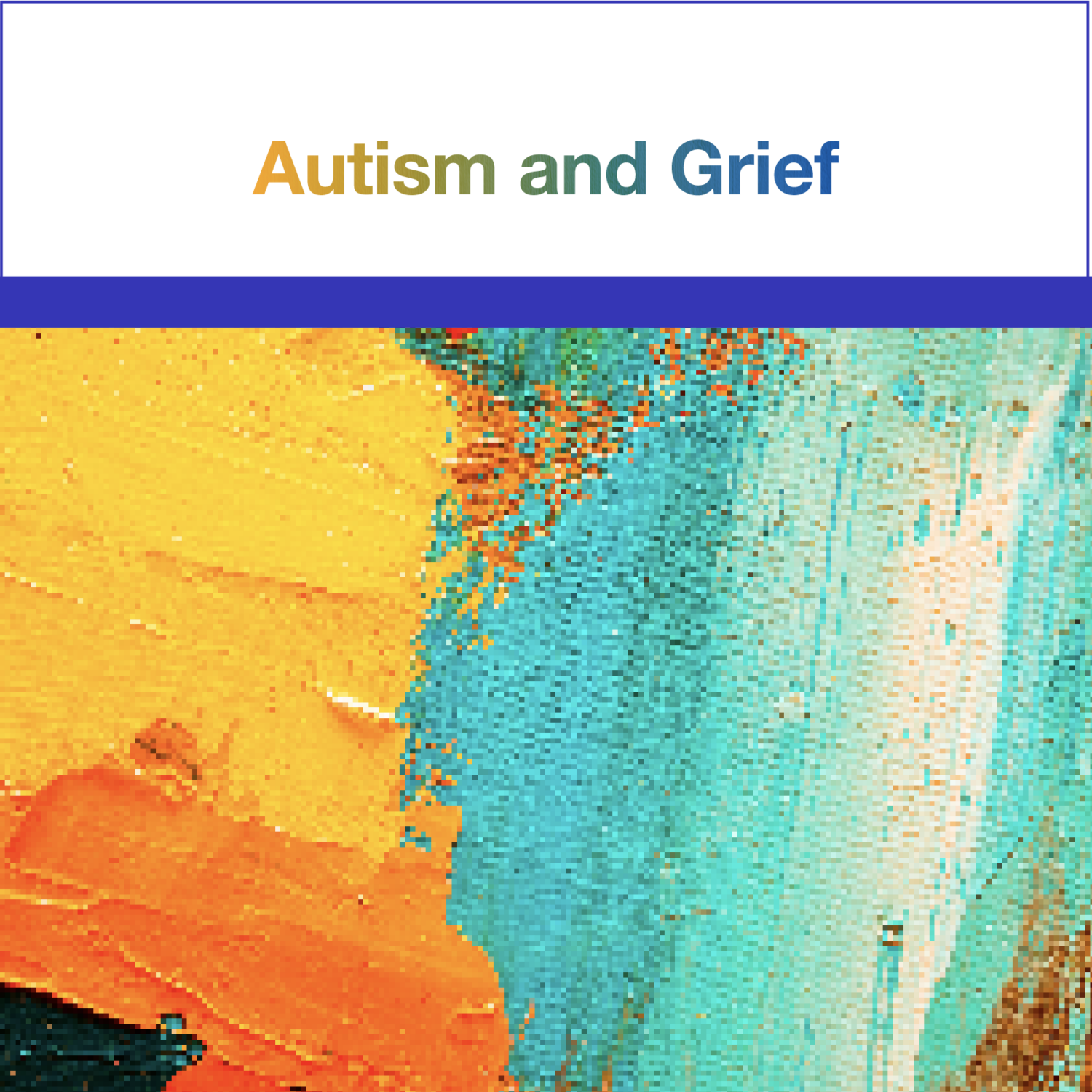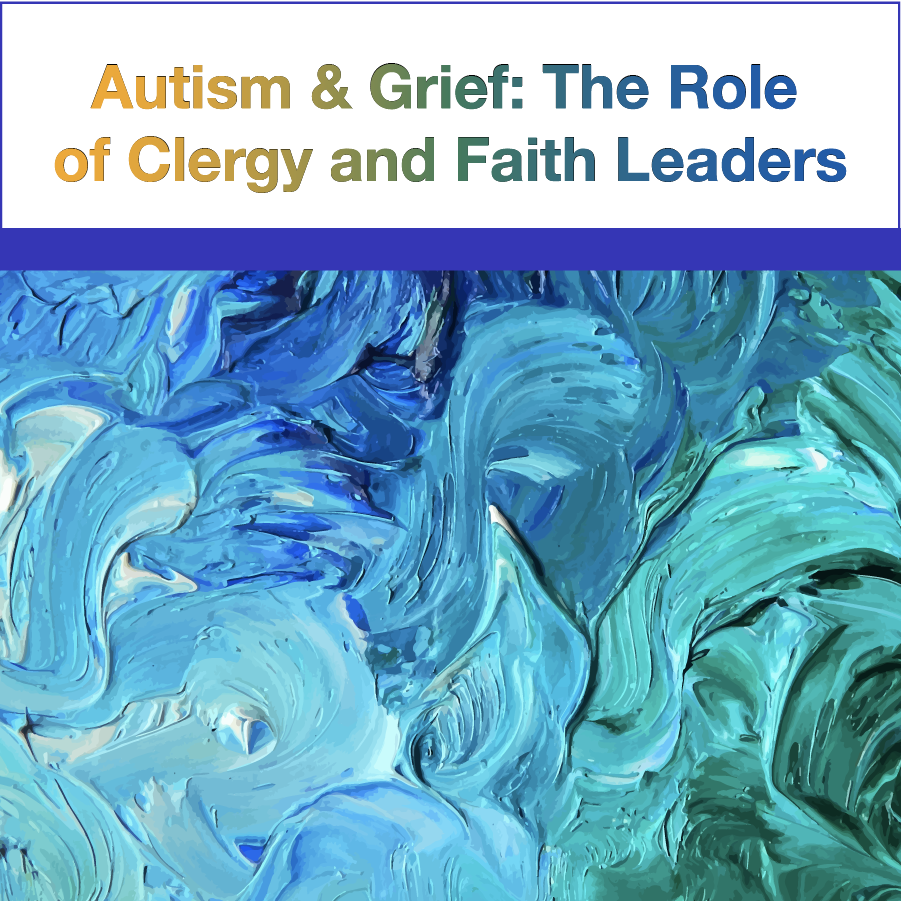Clergy & Other Professionals
The information and resources in this portal are intended to help you provide support to a grieving autistic adult. and grief responses are both highly individualized, making each person’s life experience and grief journey unique. The suggestions in this portal should be adapted based on needs of the individual.
In the summary below you will find links to topics that may be relevant to the unique situation and needs of the autistic adult in your care. Each person, situation, and grief response is unique: please tailor these tips to meet the expressed needs of the autistic person. You will find further information and guidance in the attachments, resource pages, and social stories linked to this portal.
About Autism & Grief
Professionals in a range of roles and disciplines have a high probability of interacting with someone on the , in their professional capacities and/or in their personal lives. Click the button below to learn more about autism, grief, and suggestions to provide support to a grieving autistic adult. Content in this section covers:
- About Autism & Grief
- You Know an Adult with Autism
- Characteristics of Autism
- Grief Reactions in Adults with Autism
- Spectrum Variations
- Guidelines for Interacting with a Grieving Autistic Adult
- Key Takeaways
- Case Studies – Autism & Grief
Religion, Spirituality & Role of Rituals
Click the button below to learn more about religion, spirituality, the role of rituals, and the importance of inclusion and choice when supporting a grieving autistic adult. Content in this section discusses:
- Religion & Spirituality
- Role of Rituals
- Inclusion
- When Attending is Not an Option
- Faith Rituals
- Case Studies – Spirituality & Role of Religion
More About Grief
Disenfranchised Grief
When grief is disenfranchised, complications in the grieving process can occur. These complications can be magnified for a person with autism as well as for people with intellectual and developmental disabilities. Click the button below to learn more about:
- Disenfranchised Grief
- How an Autistic Adult’s Grief is Disenfranchised
- Responding to Disenfranchised Grief
- Case Studies – Disenfranchised Grief
Grieving Styles
Every person’s way of coping with grief and loss will be shaped by their own strengths and experiences. Often referred to as “grieving styles,” these responses may be influenced, but are not determined by, factors such as gender, ethnicity, and culture. Click the button below to learn about:
- Grieving Styles
- Support Strategies
- Case Study – Grieving Styles
Grief & Contemporary Grief Theories
While current research has not included adults with autism, understanding current grief theory is helpful to any professional working with any grieving individual. While these theories are based on neurotypical populations, they can illustrate some of the issues that may complicate grief in persons on the spectrum. Click the button below to learn about:
- What is Grief?
- Contemporary Grief Theories
- Worden’s Tasks of Mourning Model
- Task Theory and Autism
- Dual Process Model
- Conducting a Loss Inventory
- Helpful Evidence-Based Terms
Coping with Serious Illness
The diagnosis of a life-limiting illness is a difficult time for families. Whether the loved one is a family member, close friend, direct support staff, or pet, a serious illness can cause distress, confusion, and worry. Click the button below to learn about:
- Coping with Serious Illness
- Recommendations for Providing Support
- Hospice and Palliative Care
- Case Studies – Serious Illness
Educational Programs
These free informational programs are provided by the Hospice Foundation of America (HFA). Clicking the View Programs links below will redirect you to the HFA website to view the programs on demand.

Autism and Grief
90 minutes
This program empowers professionals in their service to adults with autism experiencing grief and loss. Expert panelists examine the disenfranchisement that can occur for grieving people with autism and discuss ways to enfranchise them during their grief journey. The program also addresses grief after non-death losses, anticipatory mourning, and how adults with autism may best be supported.
Target Audience: Social workers, nurses, paraprofessionals, speech therapists, occupational therapists, funeral directors, and other caring professionals.

Autism and Grief: The Role of Clergy and Faith Leaders
90 minutes
This program focuses on supporting adults with autism in their grief and loss and explains ways in which autistic adults may experience and express grief. It features experts who provide tools, resources, and strategies for clergy and faith leaders to use in their communities to enfranchise and support those with autism throughout their grief journey.
Target Audience: Clergy, chaplains, pastoral care professionals, youth ministry leaders, religious educators, and others from any spiritual or faith traditions.
Helpful Tools
Use these case studies, social stories, and loss inventory to enhance your expertise when supporting a grieving autistic adult.
